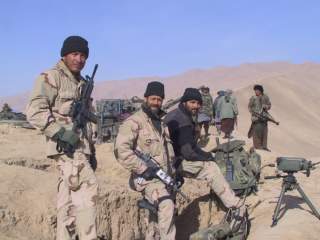Why Fighting Through Auxiliaries Usually Fails
These are the top reasons enlisting auxiliaries to fight for us doesn't usually turn out well...
First, Turkey is deeply concerned with the emergence of an autonomous Kurdish polity on its southern border, especially one with organic ties with its nemesis, PKK. Second, YPG’s increasing military might, when combined with the fact that the Syrian Kurds took over a number of strategic towns where Sunni Arabs are the majority of the population, is fueling the ethnic tensions between Kurds and Arabs. For example, while Western audiences applauded the capture of Tal Abyad (a Sunni Arab majority town) by the YPG forces as a strategic success, the development also created suspicions among the Sunni populations in the region. Third, the rise of YPG (and PKK) also raises questions about the prospects of a greater Kurdistan, which would be a huge concern not only for Turkey, but also Baghdad and Iran.
Now, do the math. YPG alone cannot destroy ISIS and its West-assisted rise is alienating (and even infuriating) a multitude of actors including Turkey, the Iraqi government, some Sunni tribes and even Iran, who are all potential allies in the United States’ struggle against ISIS. This is a complicated picture that does not allow for a cheap and quick (and decisive) solution to a region-wide problem. Analysts may want to believe that there is one, but wishful thinking rarely makes for sound strategy.
Fighting ISIS through auxiliaries will remain a hotly debated topic. Note that the argument here is not that the United States should either “do it alone” or just learn to live with an ISIS-infested Middle East. It is that if the United States intends to fight ISIS through auxiliaries, its analysts should pay more attention to the question of why such endeavors usually fail to achieve their political objectives—which in this case I will assume to be, following Liddell Hart, establishing a better state of peace (if mainly for the United States) compared to what preceded such attempts—in the long run. If we can figure out why fighting through intermediaries usually fails in the long run, then we may have a chance at making sure that “this time” ends up being the exception.
Burak Kadercan is an Assistant Professor of Strategy and Policy at the United States Naval War College. He has a Ph.D. in Political Science from the University of Chicago and specializes in territorial and religious conflicts, the relationship between state-formation and production of military power, and empires. At the Naval War College, Kadercan lectures on the Islamic State as well as the legacies of the Ottoman Empire on present-day politics of the Middle East. The views expressed here are his own and do not reflect those of the Naval War College, the Department of the Navy, the Department of Defense, or the U.S. Government.

